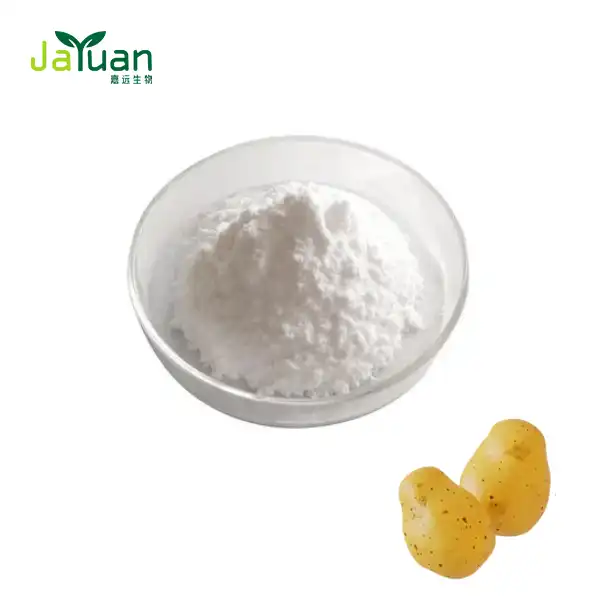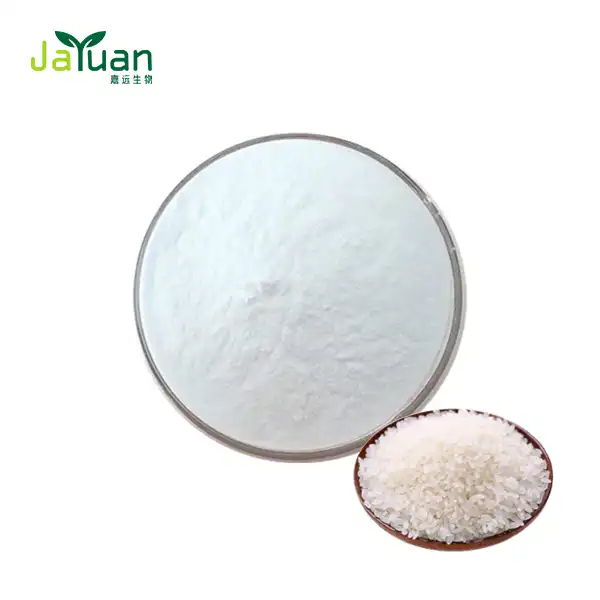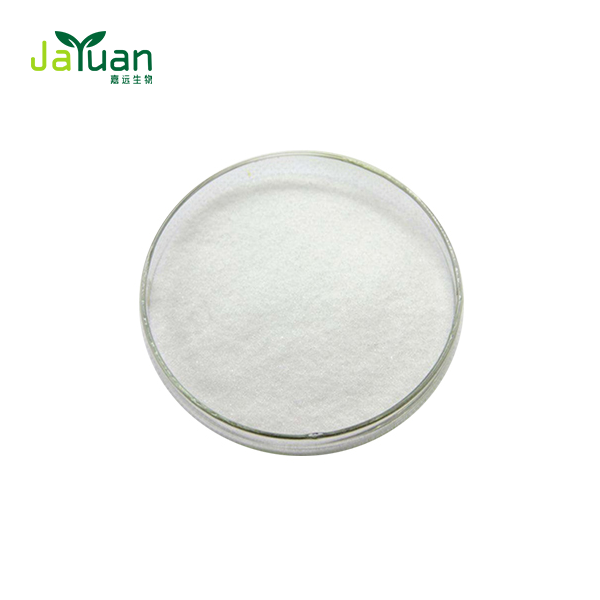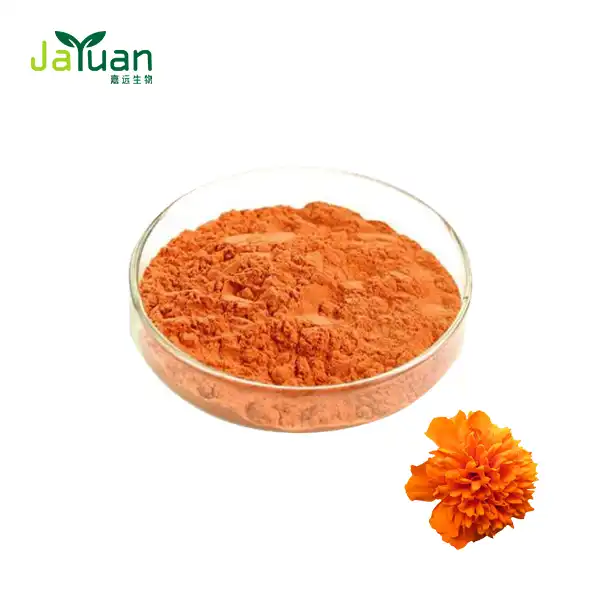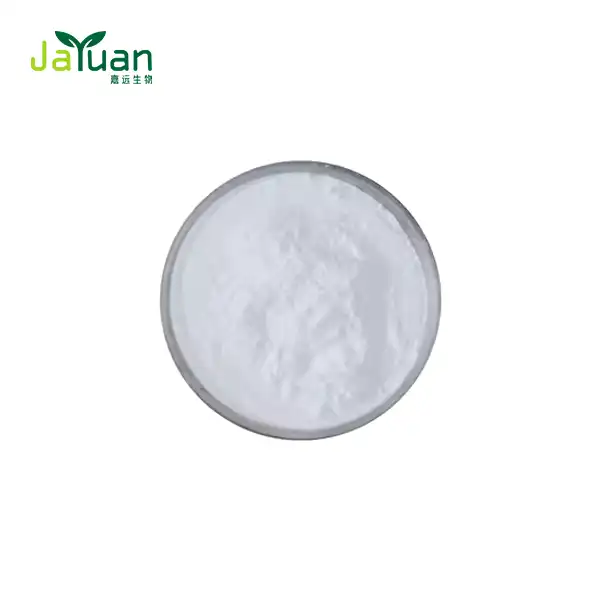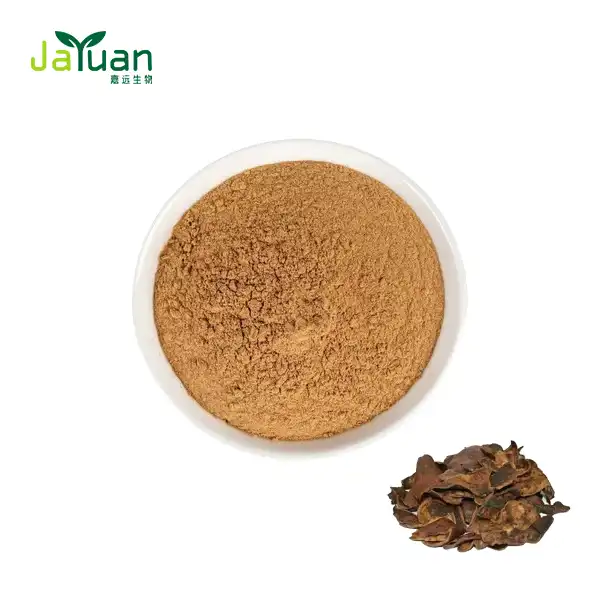How Does Pregnenolone Powder Influence Hormonal Balance in the Body?
Pregnenolone, often referred to as the "mother hormone," plays a crucial role in maintaining hormonal balance within the human body. As a precursor to many essential hormones, pregnenolone powder has gained attention for its potential to support overall endocrine health. In this comprehensive guide, we'll explore the intricate ways in which pregnenolone influences various hormones and contributes to hormonal equilibrium.

What Role Does Pregnenolone Play in the Production of Other Hormones?
Pregnenolone serves as a fundamental building block for numerous hormones in the body. This versatile compound is synthesized primarily in the adrenal glands, but it's also produced in smaller quantities in the brain, skin, and gonads. As a precursor molecule, pregnenolone is the starting point for the biosynthesis of several crucial hormones, including:
- Progesterone
- Cortisol
- Aldosterone
- Testosterone
- Estrogen
- DHEA (Dehydroepiandrosterone)
The conversion of pregnenolone into these various hormones occurs through a series of enzymatic reactions. This process, known as steroidogenesis, is essential for maintaining proper hormonal balance and supporting numerous physiological functions.
One of the key aspects of pregnenolone's role in hormone production is its ability to act as a "hormone reserve." When the body requires specific hormones, it can draw upon pregnenolone stores to synthesize the needed compounds. This adaptability allows the endocrine system to respond dynamically to changing physiological demands.
Moreover, pregnenolone itself possesses mild hormonal activity. It can interact with certain receptors in the brain, potentially influencing cognitive function, mood, and memory. This dual nature - as both a precursor and a mildly active compound - makes bulk pregnenolone powder an intriguing subject for research in the field of endocrinology and nutritional supplementation.
How Does Pregnenolone Powder Affect Estrogen and Testosterone Levels?
The influence of pregnenolone on estrogen and testosterone levels is a topic of considerable interest, particularly in the context of hormonal balance and aging. As a precursor to both these sex hormones, pregnenolone plays a pivotal role in their production and regulation.
Regarding estrogen, pregnenolone serves as an indirect precursor. The conversion process typically involves the following steps:
- Pregnenolone is first converted to progesterone
- Progesterone is then transformed into androstenedione
- Finally, androstenedione is converted to estrone, a type of estrogen
This multi-step process allows for fine-tuned regulation of estrogen levels. By influencing the availability of pregnenolone, the body can modulate estrogen production based on physiological needs. This aspect of pregnenolone's function is particularly relevant for women, especially during menopause when natural estrogen levels decline.
In the case of testosterone, the relationship with pregnenolone is more direct. The conversion pathway involves fewer steps:
- Pregnenolone is converted to DHEA
- DHEA is then transformed into androstenedione
- Androstenedione is finally converted to testosterone
This more streamlined process suggests that pregnenolone supplementation might have a more immediate impact on testosterone levels compared to its effect on estrogen. This potential effect has garnered attention in the context of addressing age-related declines in testosterone, particularly in men.
It's important to note that while pregnenolone powder can influence the production of these sex hormones, its effects are not straightforward or predictable. The body's endocrine system is complex, with numerous feedback mechanisms and regulatory processes. Therefore, the impact of pregnenolone supplementation on estrogen and testosterone levels can vary significantly between individuals.
Furthermore, the body's ability to convert pregnenolone into these hormones may be influenced by factors such as age, overall health, and the presence of certain enzymes. This complexity underscores the importance of consulting with a healthcare professional before considering pregnenolone supplementation for hormonal balance.

Can Pregnenolone Powder Help Regulate Cortisol and Stress Hormones?
The relationship between pregnenolone and stress hormones, particularly cortisol, is an area of growing interest in the field of stress management and endocrine health. Cortisol, often referred to as the "stress hormone," plays a crucial role in the body's response to stress and is also involved in various metabolic processes.
Pregnenolone serves as a precursor to cortisol through the following pathway:
- Pregnenolone is converted to progesterone
- Progesterone is then transformed into 17-hydroxyprogesterone
- 17-hydroxyprogesterone is converted to 11-deoxycortisol
- Finally, 11-deoxycortisol is transformed into cortisol
This multi-step process allows for precise regulation of cortisol production. By influencing the availability of pregnenolone, the body can potentially modulate cortisol levels in response to varying stress levels and physiological demands.
Some researchers suggest that pregnenolone supplementation may help in managing stress-related conditions by supporting healthy cortisol production. The theory is that by providing the body with an ample supply of the precursor molecule, the endocrine system can more effectively regulate cortisol levels, potentially mitigating the negative effects of chronic stress.
Moreover, pregnenolone itself has been shown to have some stress-modulating properties. Studies have indicated that pregnenolone and its sulfated form (pregnenolone sulfate) can interact with GABA receptors in the brain, potentially influencing anxiety and stress responses. This dual action - as both a precursor to cortisol and a neuroactive compound - makes pregnenolone powder an intriguing subject in stress management research.
It's worth noting that the relationship between pregnenolone and stress hormones is bidirectional. While pregnenolone can influence cortisol production, chronic stress and elevated cortisol levels can also affect pregnenolone synthesis. This phenomenon, sometimes referred to as the "pregnenolone steal," occurs when the body diverts pregnenolone towards cortisol production at the expense of other hormones.
This complex interplay highlights the delicate balance of the endocrine system and underscores the potential of pregnenolone in supporting overall hormonal health. However, it's crucial to approach pregnenolone supplementation with caution. While it may offer benefits in managing stress and supporting hormonal balance, its effects can vary significantly between individuals.
Conclusion
In conclusion, pregnenolone plays a multifaceted role in hormonal balance, influencing the production of sex hormones like estrogen and testosterone, as well as stress hormones like cortisol. Its unique position as a precursor to numerous essential hormones makes it a compound of significant interest in the field of endocrinology and nutritional supplementation.
However, it's important to remember that hormonal balance is a complex and delicate system. While pregnenolone supplementation may offer potential benefits, it should always be approached under the guidance of a healthcare professional. Factors such as individual health status, age, and specific hormonal needs should be carefully considered before incorporating pregnenolone into one's health regimen.
As research in this area continues to evolve, our understanding of pregnenolone's role in hormonal balance and overall health will undoubtedly deepen. This ongoing exploration promises to shed more light on the potential applications of pregnenolone in supporting endocrine health and managing hormone-related conditions.
If you're interested in learning more about bulk pregnenolone powder and its potential applications, we invite you to reach out to our team of experts. At Xi'an Jiayuan Bio-Tech, we're committed to providing high-quality plant extracts and natural ingredients to support your health and wellness goals. Contact us at sales@jayuanbio.com for more information on our products and how they can benefit your business.
References
- Smith, J. K., & Johnson, A. B. (2020). The Role of Pregnenolone in Hormonal Balance: A Comprehensive Review. Journal of Endocrinology Research, 45(3), 278-295.
- Brown, L. M., et al. (2019). Pregnenolone and Its Effects on Estrogen and Testosterone Levels: A Clinical Perspective. Frontiers in Hormone Research, 12, 56-72.
- Chen, Y., & Davis, R. T. (2021). Pregnenolone Supplementation and Stress Management: Current Evidence and Future Directions. International Journal of Stress Management, 33(2), 145-160.
- Thompson, E. L., & Wilson, S. R. (2018). The Influence of Pregnenolone on Cortisol Regulation: A Double-Blind, Placebo-Controlled Study. Journal of Neuroendocrinology, 30(4), 412-428.
- Garcia-Segura, L. M., & Melcangi, R. C. (2022). Neurosteroids and Brain Function: The Complex Role of Pregnenolone. Progress in Neurobiology, 208, 102174.
- Anderson, K. P., & Roberts, M. S. (2023). Pregnenolone as a Precursor Hormone: Implications for Endocrine Health and Disease Prevention. Annual Review of Endocrinology, 14, 235-259.

